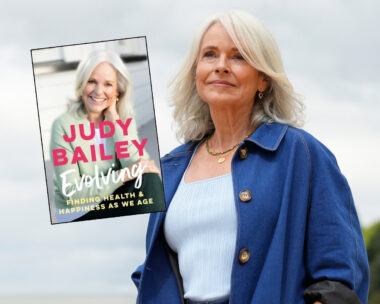We all know that being a parent is the toughest job around, and that staying at home to care for babies and young children cultivates in us new skills and attributes we didn’t even know we had – resilience, patience, fortitude – and the ability to do 47 things all at once.
Yet when it comes to returning to the work force, are these attributes that employers want to know about? Do we proudly state ‘mum’ or ‘dad’ on our CV and detail our children’s names and ages as well as a cute list of key competencies (time management, negotiation skills, multi-tasking)? Or do we stick only to detailing our paid work experiences?
Managing director of Consult Recruitment, Angela Cameron, advises that we should definitely account for our time out of the office, but she wouldn’t use the word ‘mum’ or ‘dad’ – more on that later.
“When you’re a hiring manager and looking at résumés, when there’s some time on the résumé that’s not accounted for it makes you nervous,” Cameron says. “There is more of a risk factor associated with that, and a hiring manager will tend to focus on the gaps rather than the stuff you have accounted for.
“A few years ago I interviewed a man who had 18 months unaccounted for on his CV. When I asked him about it he was a bit weird on it so I did my due diligence and discovered he’d been in jail. So it is important to account for your time.”
Filling in the gaps gives you the opportunity to explain more fully who you are as a person.
“And it’s okay to have a life – to have an extended holiday or be looking after sick parents or having kids,” she says.

However she wouldn’t recommend using the words ‘mum’, ‘dad’ or ‘parent’ .
“I’d say ‘family responsibilities’,” she says.
“It could mean kids, it could mean that you’ve been caring for a sick family member, and if you want to talk about it further you can.
“When people put down ‘home executive’ and ‘management’ and ‘multi tasking’, I personally think it demeans it. Everyone knows what being a parent is like and anyone who is a parent knows it’s a really, really tough job, and I think when you are a parent trying to come back you over-sell that aspect and you don’t need to. Just be black and white about it. It is what it is, you don’t need to justify it.”

What if you’re worried you won’t get the job because you might be judged as someone who’s going to be less committed to the role and/or always taking time off to be there for the kids?
“You don’t want to be working for those employers anyway,” Cameron reassures. “It’s not going to be a happy place for you.
“Interviews are a two-way street and it’s as much about you working out if they’re the right organisation for you as it is the other way round.
“There will be organisations that are not supportive and make judgement calls (that I don’t support),” Cameron says, “but I believe it’s probably the minority. We work with a huge number of organisations where all they want to do is hire a mum or dad who wants to get back into the work force because they know that they’ll get someone who is super-keen and motivated, resilient and ambitious and really appreciative of the job.”

One of the key issues for parents returning to the work force that extends far beyond figuring out what to put on your CV is actually overcoming their loss of confidence – and perhaps that’s the real issue here.
“You can be working hard and have a great career then you have a baby and all of a sudden you’re ‘Jack’s mum’. I know, I’ve walked it,” says Cameron, a mum of two.
Before we even start thinking about our CV maybe we need to be nurturing our confidence.
“Trying to maintain your confidence as much as possible is important,” says Cameron, “and that can be things like continuing to do things that are just for you, like going to a yoga class or to book club. It doesn’t matter what it is, just as long as you’re doing something that’s about you.
“Before you go on maternity or paternity leave identify people in your network and keep in contact with them, because you can become very isolated as a parent and I think part of that loss of confidence is not knowing what is going on,” Cameron says.
“They don’t need to be people from the job you’ve left, just people you admire and that you can catch up with for a coffee once a quarter.”
She also prescribes to “putting on your cap and just pretending you’ve got all the confidence in the world. You’ve got to fake it for a while and then you do eventually catch up with yourself and start believing in yourself.
“So many of us go through this. Worry less about the outcome and just get back into it.”



